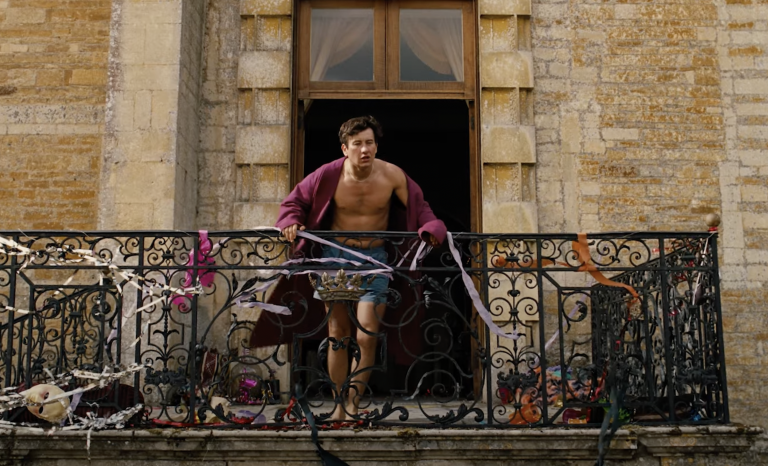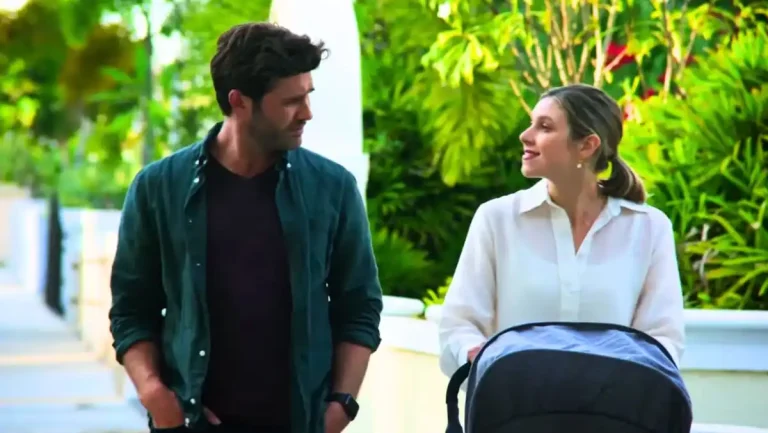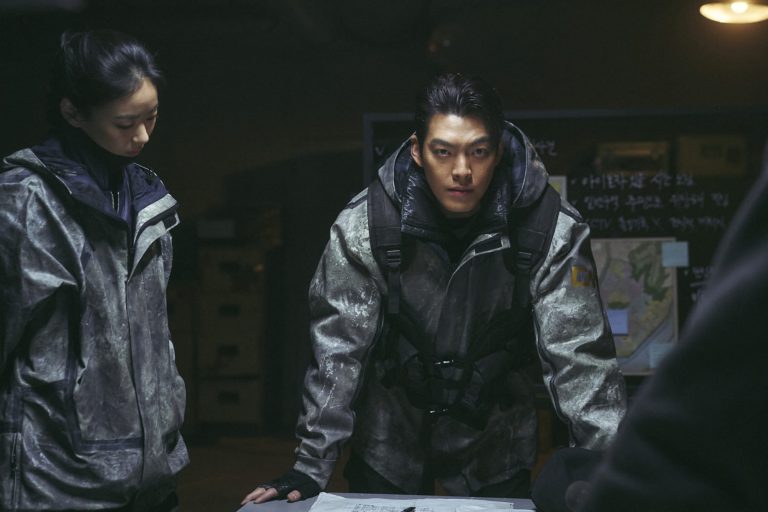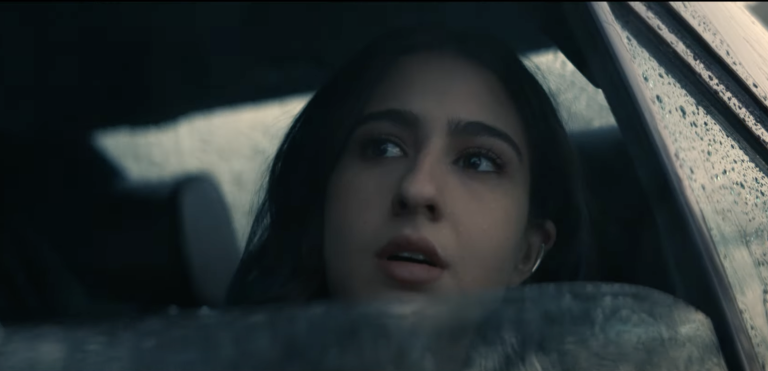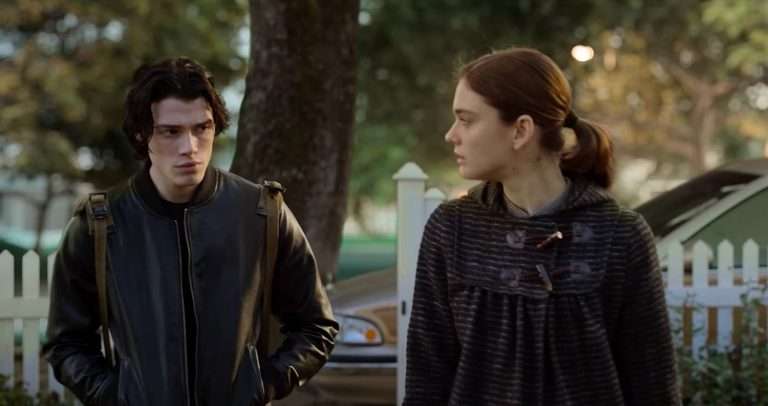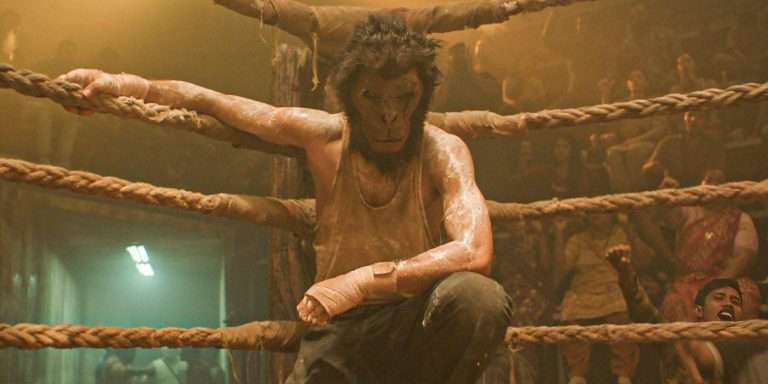Tamar Kalandadze and Julien Pebrel’s “The Kartli Kingdom” transmits an experience of a place as lived and remembered. In the shadow of displacement wrought by the 1992 civil war, refugees from Abkhazia found sanctuary in a desolate sanatorium in Tbilisi. Dubbed the Kartli Kingdom, this space, where the exiled have huddled, is at the fragile heart of the film. Their return is proscribed. Promised apartments aren’t delivered yet. When the film opens, a resident leaps off the roof to his death, frustrated and battered by the State’s blatant indifference to fellow inhabitants’ protests.
What the film does best is immerse us within a particular atmosphere, a place evoked with a vivid sweep. We are put cheek to jowl with a gaggle of people, their roving speculations and swelling disaffection. Families are jostling for space, yet strongly united in their assertion of rights. These are people abandoned by the State, but who won’t let that beat them down.
None of them is resigned to defeat. All push beyond, each hoping for a continually deferred home of their own. How does a displaced community come together as a unit of love and care? What’s the time it takes for fault lines of shared trauma to stoke kindred connection? The fallout of the war hasn’t been mediated or doled out a salve. Wedged between clashing sides, the refugees are left dangling with no foothold.
Kalandadze and Pebrel hinge on an allusive temporal span. We don’t just lock onto a precise moment but are granted a gamut of time within which lives unfurl, people grow towards their desired destinations, or are wafted into stasis. In the building, time seems to be at a standstill, yet subtle shifts stir in the air. To summon a lived-in space, grasp secrets and whispers emanating through corridors, a film needs to intensely capture a sense of presence and being. The makers work from an axis of unobtrusive observation. There’s a fly-on-the-wall gaze, nonchalantly perceptive and unassuming.

This chronicle is very much attuned to sensations, the heartbeat of a place. The documentary has no impulse or prodding need to feed into or crank up dramatic revelations. It’s as steadily watchful as recording people who’ve been shoved off a permanent address. An enveloping quietness drifting through the halls and stairs of the building gestures to the limbo they are trapped in.
Every day is a fresh re-negotiation of expectations. A place meant to be a brief reprieve has had its stay stretched out far beyond early assumptions. There’s some chafing among residents on the question of leaving. To depart and relocate is also to get untethered from the community that’s been built. A sense of family culled together would only be ripped apart with a fresh move. Departing gets mired in guilt and regret. Displacement remains a constant circumstance. One hurled in, it lingers pervasively.
The derelict building is conflated with a long-lost space, embracing in its midst collective anxieties, fears, and longings. Mapped into this decrepit space is a realm of its own, an echo of one’s roots. The building is peeling, the community intact nevertheless. It’s a tight-knit group, the emotional anchorage and kinship entwined with the building, stolid enough not to dissolve into oblivion. Together they can be light about mutual troubles as well as advance demands with conjoined might.
These are threaded with archival footage. In an especially disconcerting snatch, the expelled lug trudges through steep terrain and freezing conditions, barely well-clad for the biting temperatures. This historical memory is a hovering force, abiding in the shadows. People have had houses burnt down, cattle killed. So much had been razed to the ground, and the refugees had to begin anew, thrown into a transitory state.
In a pointed, wrenchingly observed moment, someone remarks that everyone only memorialises the dead and war heroes. What of the survivors? “The Kartli Kingdom” encapsulates its stories, endowing them with individual dignity. It flits from one to another, without diminishing any. Tamuna fades away, and Irma steps forth. Kalandadze and Pebrel weave a symphony, arcing across rage, helplessness, and despair. Anecdotes are traded; one finds compassion and recognition in the other.
Never privy to overstatement or self-aggrandisement, “The Kartli Kingdom” is spiritually riven with voices and experiences that the establishment would rather have brushed away. By affirming those, giving credence and legibility, the directors empathetically, emphatically assert the Kartli collective destiny. This film is a vital, throbbing act of re-empowerment and reinstatement.



